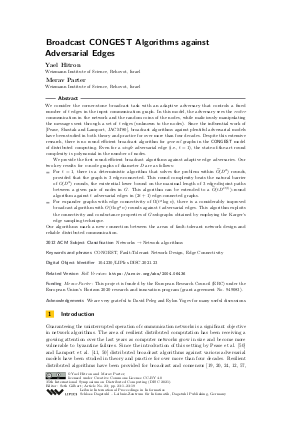LIPIcs.DISC.2021.23.pdf
- Filesize: 0.7 MB
- 19 pages

 Creative Commons Attribution 4.0 International license
Creative Commons Attribution 4.0 International license






























































Feedback for Dagstuhl Publishing